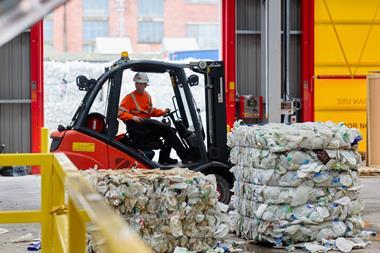All change!
Early in my career I drifted out of chemistry, without ever making a conscious decision to do so. However, from the outside I kept an eye on what was happening in the profession. One of the first things to strike me was the sweeping changes in nomenclature that took place. I started to take this personally, regarding it as a deliberate attempt to make sure I was never tempted to try to get back in. Not even the periodic table, one of the fundamental building blocks of science, was spared: the noble gases used to flourish - rather aptly - in group zero. Now, they languish in group 18.
Then take Health and Safety, in my day often confused with Health and Efficiency, a top-shelf naturist magazine long on cellulite and strategically placed beach balls. This reflected the then prevailing rather cavalier attitude to safety: in any laboratory there were pools of mercury lying around, frequent fires, and the odd explosion. I am amazed any of us survived. We had fume cupboards of course, but they were small and cramped, whereas you can walk into today’s models. No doubt in the USA they favour the drive-in variety.
On the rare occasions I venture into a laboratory nowadays, it seems to me that there is vastly more high tech instrumentation on view - all flashing lights and spinning dials - but the biggest changes stem from the advent of the computer. When doing my PhD, I did have access to a computer, in the same way that the man in the street had access to the Dorchester Hotel. First you had to come up with the money, then get past the doorman. Our computer, typical of its era, was a machine the size of a bus, housed in air-conditioned premises and fiercely guarded by a white-clad priesthood to whom the necessary obeisance had to be paid before your request for computer time could even be placed in the queue. The whole thing took so long that most of us learned to do without.
Contrast that with today’s situation, where any self-respecting chemistry department features wall-to-wall laptops. I am envious for combined with the internet, they must greatly ease the vital task of checking the literature to make sure you are not re-inventing the wheel before setting out on your research topic.
And consider something as fundamental as the states of matter. When I were a lad there were three - solid, liquid and gas. At the last count we are up to at least seven, with hot glowing plasma, Bose-Einstein condensates, fermionic condensates and strange matter, of the sort believed to be found in massive neutron stars, added to the original foundation-garment trio. And you will find takers for the inclusion of supercritical fluids, some types of liquid crystal, and the rubbery and glassy states of polymers too.
When I first started to think of myself as a chemist I believed, along with all my generation, that we understood hydrogen bonding, which we knew was responsible for the anomalous properties of water that allow life as we know it to exist. We even believed we knew how this strange but vital bond arose, from a combination of electrostatic and covalent effects. Now we are told that hydrogen bonds are actually a consequence of the strange quantum phenomenon of zero-point vibration. Personally, I am inclined to believe it, for the whole of chemistry works on quantum mechanical principles: as we knew, because Linus Pauling told us so. (It wasn’t until the 1970s that the light dawned that relativistic effects too are crucially important in determining the physical and chemical behaviour of the heavier elements).
And the most significant of all these changes? I have a sneaking fancy for the idea that common-or-garden water may after all be the ultimate quantum fluid.
Brian Malpass












No comments yet